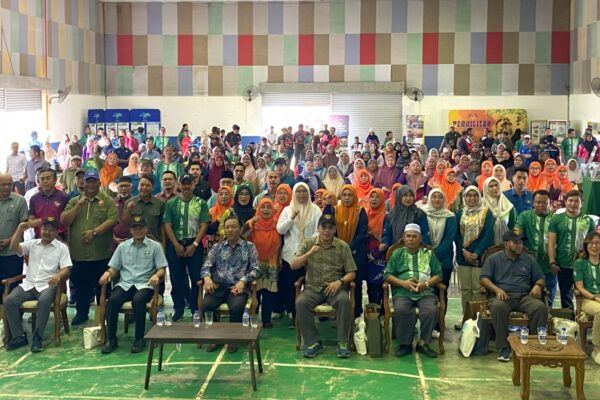4 min read
In just two years, a collaborative effort involving Earthworm Foundation, ECOM USA, LLC and several regional partners through ECOM USA's Verde by ECOM program has helped direct premiums to cotton farmers and enrolled over 150 growers in regenerative agriculture programs—well ahead of a five-year program goal of 90 participants.

This progress reflects a growing alignment between market demand and farming practices that prioritize soil health, biodiversity, and long-term resilience. It also shows that, when market incentives and on-the-ground support are effectively combined, regenerative agriculture becomes a more practical and accessible option for producers.
Cotton is an important part of the U.S. agricultural economy, but it also faces serious challenges, from depleted soils to increasingly unpredictable weather.

Transitioning to regenerative practices like cover cropping, reduced tillage, and improved nutrient management can help address these pressures. Still, adoption often depends on both financial viability and the presence of trusted support systems.
The premiums made available through ECOM USA’s supply chain relationships have provided one part of the solution. The other has come through the design and delivery of technical support programs that meet farmers where they are—something Earthworm Foundation has contributed to as a field partner and strategic advisor.

Earthworm Foundation’s involvement in this initiative focuses on:
- Supporting the development of regenerative agriculture programming tailored to regional conditions
- Contributing to data collection systems that meet the needs of both farmers and buyers
- Providing project management and strategic support to help scale participation and maintain program quality
Rather than leading the change, Earthworm plays a facilitative role—working behind the scenes to support project partners from across the supply chain and ensure that programs are both effective and credible.
When the five-year program was first envisioned, the goal was to bring 90 farmers on board by its conclusion. That milestone was passed in Year 2, with over 150 farmers now participating. This early momentum suggests that the model—linking regenerative practices with real market recognition—is resonating.

Much of this success can be attributed to ECOM’s ability to connect growers with brands that are ready to invest in more sustainable cotton. But it also reflects the value of consistent technical support and data-driven program design, which Earthworm Foundation helps deliver.

This work is part of a broader shift in the cotton sector, where increasing attention is being paid to land stewardship, climate resilience, and farm-level outcomes. By bringing together companies, growers, academic partners, and verification bodies, initiatives like this help build the infrastructure needed to make regeneration scalable and measurable.
In the U.S., Earthworm’s partnership with ECOM and support for Verde by ECOM is contributing to that effort—not as a headline-grabbing transformation, but as a steady, practical contribution to a more sustainable future for cotton growers and their communities.
This material is based upon work supported by the U.S. Department of Agriculture, under agreement number NR233A750004G043


